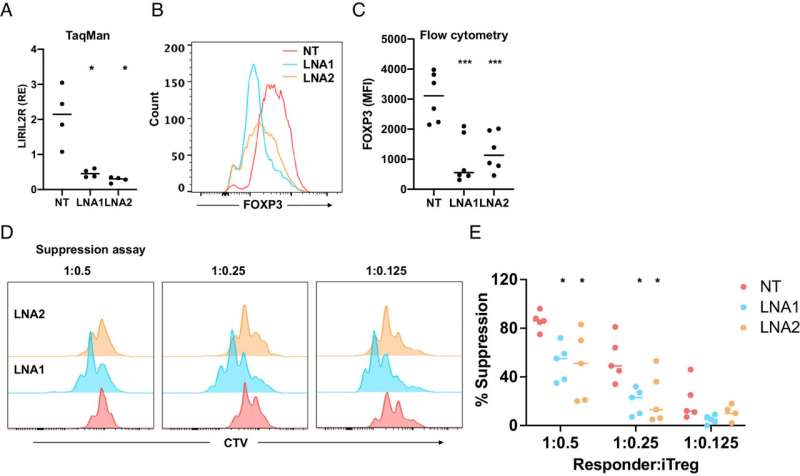This article has been reviewed according to Science X's editorial process and policies. Editors have highlighted the following attributes while ensuring the content's credibility:
fact-checked
peer-reviewed publication
trusted source
proofread
Scientists discover a novel modulator of human regulatory T cells

The research group of Professor Riitta Lahesmaa have discovered a novel modulator for human regulatory T cells. This novel regulator can strengthen or dampen immune response and provides a new basis for therapeutic approaches for immune mediated diseases.
The Lahesmaa group is based at Turku Bioscience Center of the University of Turku and Åbo Akademi University in Finland and is part of the InFLAMES Research Flagship.
The T cells in our blood fight against cancer, viruses and bacteria. Specific regulatory T cells are required to control faulty immune responses, and disruption in their function may lead to autoimmune diseases or cancer.
The scientists discovered a novel RNA that controls the development and function of regulatory T cells. This long intergenic noncoding RNA (lincRNA) modulates the levels of transcription factor FOXP3 and the suppressive function of human regulatory T cells by controlling the interleukin-2 receptor.
The research is published in the journal Proceedings of the National Academy of Sciences. The finding potentially enables the development of new therapeutic approaches to control the human immune response.
"Our discovery provides a basis for developing precision medicine treatments for autoimmune diseases and cancer. Regulatory T cells are already being studied in patients to treat type 1 diabetes, and our novel lincRNA molecule could, for example, be used to boost the production of these cells for therapeutic use," says Lahesmaa.
The discovery is particularly interesting because cancer cells are able to hide from the immune system by specifically manipulating regulatory T cells. Recently introduced immune activator therapeutic monoclonal antibodies for cancer are attempting to break this hiding process.
Lahesmaa suggests that by targeting the novel lincRNA molecule, it may be possible to release immune activation in cancer without using expensive antibodies.
Expression of lincRNAs is highly tissue and cell specific, so targeting these molecules will enable precision therapy against desired targets.
More information: Lahesmaa, Riitta, Long noncoding RNA LIRIL2R modulates FOXP3 levels and suppressive function of human CD4+ regulatory T cells by regulating IL2RA, Proceedings of the National Academy of Sciences (2024). DOI: 10.1073/pnas.2315363121. www.pnas.org/doi/10.1073/pnas.2315363121



















